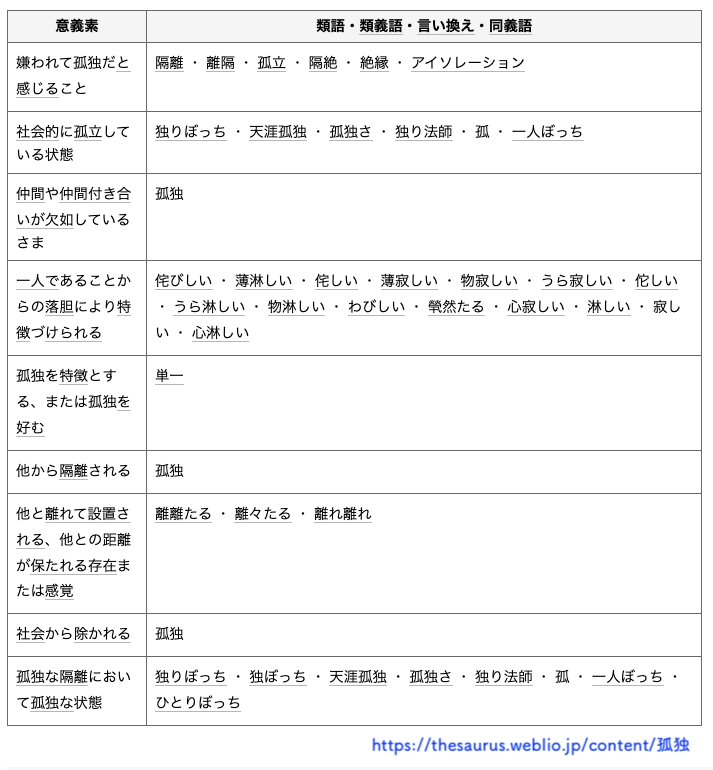孤独は心理学的な概念ではない、孤独は社会学的な概念である
Isolation, loneliness, and solitude: Definitions by Hannah Arendt

孤独は心理学的な概念ではない、孤独は社会学的な概念である
Isolation, loneliness, and solitude: Definitions by Hannah Arendt

「孤独」は心理学的な概念では ない!社会学的あるいは政治的概念である!政治的動物あるいは「ポリスに生きる存在」(Zoon politikon)としての人間を見つめ直しま しょう!
オクタビオ・パスによる孤独の 概念
| "LA SOLEDAD, el sentirse y el saberse solo, desprendido del mundo y ajeno a sí mismo, separado de sí, no es característica exclusiva del mexicano. Todos los hombres, en algún momento de su vida, se sienten solos; y más: todos los hombres están solos. Vivir, es separarnos del que fuimos para internarnos en el que vamos a ser, futuro extraño siempre. La soledad es el fondo último de la condición humana. El hombre es el único ser que se siente solo y el único que es búsqueda de otro. Su naturaleza —si se puede hablar de naturaleza al referirse al hombre, el ser que, precisamente, se ha inventado a sí mismo al decirle "no" a la naturaleza— consiste en un aspirar a realizarse en otro. El hombre es nostalgia y búsqueda de comunión." | 孤独とは、自分自身が孤独で、世界から切り離され、自分自身から切り離された異質な存在であると感じ、知ることであるが、これはメキシコ人だけの特徴ではない。す
べての人が、人生のどこかで孤独を感じる。生きるということは、これからなる未来、つまり常に奇妙な未来に入るために、これまでの自分から自分を切り離す
ことなのだ。孤独は人間の条件の究極の本質である。人間は孤独を感じる唯一の存在であり、他者を求める唯一の存在である。彼の本性は--もし人間を指して本性と言うことができるのなら--正確には、自然に対して "ノー "と言うことによって自分自身を作り出した存在である。人間とはノスタルジアであり、交わりの探求である。 |
| LA DIALÉCTICA
DE LA SOLEDAD, Octavio Paz, El laberinto de la soledad,"
1960. |
https://www.deepl.com/ja/translator. |
● 日本語における孤独の同義語

●- 隔離・孤立・ 孤独の区別
Isolation, loneliness, and solitude: Definitions by Hannah Arendt
■アーレントの3つの用語:隔離・孤立・ 孤独
| 1)
隔離(isolation) |
[大久保訳:孤立]:政治領域においておこる;私は一 緒に行動できる人がいないので行動できない。「アイソレーションと は、人々が共同の利益を追って相共に行動する彼らの生活の政治的領域が破壊された時に、この人々が追い込まれるあの袋小路のことである」[アレント 1981:319]。 |
| 2)孤立(loneliness) | [大久保訳:ロウンリネ
ス]:人間生活全般にかかわる[アレント
1981:320]。隔離されていなくても孤立を感じる(疎外感を感じる)ことがある。 |
| 3)孤独(solitude) | [大久保訳:孤独]1人 (alone)でいることを必要とする[アレント 1981:320; Arendt 2004:613] |
再掲
1) 隔離(isolation)[大久保訳:孤立]:政治領域においておこる;私は一 緒に行動できる人がいないので行動できない。「アイソレーションと は、人々が共同の利益を追って相共に行動する彼らの生活の政治的領域が破壊された時に、この人々が追い込まれるあの袋小路のことである」[アレント 1981:319]。
2)孤立(loneliness)[大久 保訳:ロウンリネ ス]:人間生活全般にかかわる[アレント 1981:320]。隔離されていなくても孤立を感じる(疎外感を感じる)ことがある。この孤立(ロンリネス)は個人にとってしばしば苦痛をもたらす。
3)孤独(solitude)[大久保 訳:孤独]1人 (alone)でいることを必要とする[アレント 1981:320; Arendt 2004:613]——孤独(ソリチュード)でいることは至福にもなる。
※「孤立(loneliness)」と
「孤独(solitude)」の用法——前者は苦痛で後者は恩恵——の二分法は、パウル・ティリッヒ
『説
教集 』(著作集別巻1)加藤常昭訳、白水社、1978.(Tillich, Paul. The
Eternal Now, N.Y.: Scribner, 1963:17-18.)のものと同じ。
※※以下は、煩瑣になるので、大久保訳に
準拠する。
■孤立化のちから
「孤 立化した人間の集団をその鉄の錨で締めつけ、そして彼らにとって沙漠となってし まった世界のなかに彼らを生かしておく全体的テラーの強圧と、各個人を して他のすべての人間からの孤独な隔絶に慣れさせる論理的演揮の自己強制力とは、テラーに支配された運動を発進させ、絶えず活動させるために、たがいに呼 応し、たがいに他を必要としあっている」[アーレント 1981:317]。
■テラーは人々を孤立させ、人々を団結させない
「テ ラーが思うまま支配し得るのはもっぱらたがいに孤立さられた人々だけであること、 だからすべての専制的政府の第一の関心事の一つはこの孤立を作り出す ことだということはしばしば指摘されて来た。孤立はテラーの始まりであるとも言えよう。たしかにそれはテロルの最も肥沃な地盤であり、テラーは常に孤立の 結果なのである。この孤立は謂わぱ全体主義以前のものである。その特徴は無力ということだが、カというものは常に共同して行動する人々の、つまり 《acting in concert》(エドマンド・バーク)の所産であるという意味でそうなのだ。孤立した人々は本来カを持たない」[アーレント 1981:318]。
■人民の孤立と無力が専制の特徴 [Arendt 2004:611]
「孤
立と無力、すなわちそもそも行動する能力を根本的に欠いているということは、これ
までずっと専制の特徴だった。人と人とのあいだの政治的接触は専制的
統治においてはたちきられ、行動をおこないカを示す人間の能力は発揮されずに終る。しかし人間間の関係のすべてが絶たれ、人間のすべての能力が破壊され
るわけではない。経験することや物を作ることや考えることの能力を含めて私生活の
領域はそっくり無傷のまま残っているのだ。しかし私たちは、全体的テ
ロルの鉄のタガ(箍)がそのような私生活の存在する余地を残さず、全体主義的論理の自己強制は人間の行動能力と同じくらい確実に経験と思考の能力をも破壊
してしまうことを知っている」[アーレント 1981:318]。
Isolation and impotence, that is the fundamental inability to act at
all, have always been characteristic of tyrannies. Political contacts
between men are severed in tyrannical government and the human
capacities for action and power are frustrated. But not all contacts
between men are broken and not all human capacities destroyed. The
whole sphere of private life with the capacities for experience,
fabrication, and thought are left intact. We know that the iron band of
total terror leaves no space for such private life and that the
self-coercion of totalitarian logic destroys man's capacity for
experience and thought just as certainly as his capacity for
action.[Arendt 2004:611]
■政治領域における隔離(isolation)が、社会的交わりにおける孤立=ロンリネス(loneliness)だが、隔離と孤立は同じではない。
[Arendt 2004:611-612]
【43】 What we call isolation in the political sphere is called loneliness in the sphere of social intercourse. Isolation and loneliness are not the same. I can be isolated -- that is in a situation in which I cannot act, because there is nobody who will act with me -- without being lonely; and I can be lonely that is in a situation in which I as a person feel myself deserted by all human companionship -- without being isolated. Isolation is that impasse into which men are driven when the political sphere of their lives, where they act together in the pursuit of a common concern, is destroyed. Yet isolation, though destructive of power and the capacity for action, not only leaves intact but is required for all so-called productive activities of men. Man insofar as he is homo faber tends to isolate himself with his work, that is to leave temporarily the realm of politics. Fabrication (poiesis, the making of things), as distinguished from action (praxis) on one hand and sheer labor on the other, is always performed in a certain isolation from common concerns, no matter whether the result is a piece of craftsmanship or of art. In isolation,/ man remains in contact with the world as the human artifice; only when the most elementary form of human creativity, which is the capacity to add something of one's own to the common world, is destroyed, isolation becomes altogether unbearable. This can happen in a world whose chief values are dictated by labor, that is where all human activities have been transformed into laboring. Under such conditions, only the sheer effort of labor which is the effort to keep alive is left and the relationship with the world as a human artifice is broken. Isolated man who lost his place in the political realm of action is deserted by the world of things as well, if he is no longer recognized as homo faber but treated as an animal laborans whose necessary "metabolism with nature" is of concern to no one. Isolation then becomes loneliness. Tyranny based on isolation generally leaves the productive capacities of man intact; a tyranny over "laborers," however, as for instance the rule over slaves in antiquity, would automatically be a rule over lonely, not only isolated, men and tend to be totalitarian. [Arendt 2004:611-612]
【43】=第43パラグラフ
【43】「われわれが政治の領域で孤立と呼ぶものは、社会的な人間関係の領域では loneliness
と呼ばれる。孤立とロウンリネスは/同一じものではない。私は lonely
ではなくても孤立しているーーつまり、私と一緒に行動する人聞が一人もいないから行動することができない状態にいるーーかもしれない。また私は孤立してい
なくても lonely
であるーーつまり、一人の個人として自分があらゆる人間的なつきあいから疎外されているように感ずる状態にあるーーかもしれない。孤立とは、人々が共同の
利益を追って相共に行動する彼らの生活の政治的領域が破壊されたときに、この人々が追いこまれるあの袋小路のことである。けれども孤立は、力を破壊し行動
能力を破壊しはするが、いわゆる人間の生産活動なるものに手をつけないばかりか、むしろこの生産活動のために必要なのである。人間は homo
faber
(工作人)たるかぎり自分の仕事とともに孤立しようとする傾向がある。つまり一時的に政治の領域から逃れようとするのだ。一方では行動(praxis)と
も、他方では純粋な労働とも異なるものとしての製作(吉富山由ll
物を作ること)は、そこに作り出されるものが工芸品であると芸術作品であるとにかかわりなく、常に人間共通の関心事からの或る程度の孤立のなかでなしとげ
られる。孤立のなかでも人は人間の営為としての世界と接触を保っている。人間の創造性の最も根源的な形式は、共同の世界に自分自身の手による何ものかをつ
けくわえる能力であるが、この形式が破壊されたときにはじめて孤立はまったく堪えがたいものになるのである。こういうことは、その主要な価値が労働によっ
て決定される、言い換えればすべての人間活動が労働に転化されてしまっている世界では起り得る。そのような条件のもとでは純粋な労働の努力||それは命を
つな守ための努力にほかならないーーだけが残されており、人間の営為としての世界との関係は絶たれている。行動の政治的領分のなかで自分の席を失った孤立
した人聞は、もはやhomo faber としては認められず、その不可欠の「自然との代謝」のことなど誰も心配してくれないようなanimal
laboranse (辛苦する動物)として扱われるならば、物の世界からも見捨てられる。そうなると孤立は loneliness
となる。孤立の上に成立っている専制は一般に人間の生産能力を無疲のままに残しておいてくれる。ところが、たとえば古代の奴隷に対する支配のような〈辛苦
する人々〉に対する専制は自動的に、単に孤立しているだけではなく lonely
でもある人々に対する支配となり、そして全体主義的な傾向を/持つだろう」[アレント 1981:319-320]
■人間的孤立は最も根本的で最も絶望的な経験の一つ
【44】 「【隔離】は人間生活の政治的領域に関係するにすぎないが、【孤立】= loneliness は全体としての人間生活に関係する。たしかに全体主義的統治はすべての専制と同様、人間生活の公共的領域を破壊することなしには、つまり人々を【隔離】さ せることによって彼らの政治的能力を破壊することなしには存在し得なかった。しかし全体主義的支配は、統治形式としては、この【隔離】だけでは満足せずに 私生活をも破壊するという点で前例のないものである。全体主義的支配は【孤立】= lonlyness の上に、すなわち人間が持つ最も根本的で最も絶望的な経験の一つである、自分がこの世界にまったく属していないという経験の上に成立っている」[アレント 1981:320]【44パラグラフ:訳語は変えてあります】
While isolation
concerns only the political realm of life,
loneliness
concerns human life as a whole. Totalitarian government, like all
tyrannies, certainly could not exist without destroying the public
realm of life, that is,without destroying, by isolating men, their
political capacities. But totalitarian domination as a form of
government is new in that it is not content with this isolation and
destroys private life as well. It bases itself on loneliness, on the
experience of not belonging to the world at all, which is among the
most radical and desperate experiences of man[Arendt 2004:612].
■全体主義はアイソレーションのみならずロンリネスを恐怖をもって作り出す
【45】 「テラーを生む一般的な地盤であり、全体主義的統治の本質であり、そしてイデ オロギーもしくは論理性にとっては、その執行者および犠牲者を作り上 げるものである lonelyness は、産業革命以来現代の大衆の宿業(しゅくごう)となっていた、そして前世紀末の帝国主義の興隆およぴ現代における政治制度および社会的伝統の崩壊ととも に鮮明になった、根を絶たれた余計者的な人間の境遇と密接に関係している。根を絶たれたというのは、他の人々によって認められ保障された席をこの世界に 持っていないという意味である。余計者ということは、全然この世界に属していないということを意味する。孤立が loneliness の予備条件であり得る(あらねばならぬ、ではない)のとまったく同様にを絶たれていることは余計者であることの予備条件であり得る。それを生んだ最近の歴 史的原因や政治のなかでそれが演ずる新しい役割を捨象してそれ自体について見れば、lonelyness は人間の条件の基本的な要求に背馳すると同時に、すべての人間の生活の根源的な経験の一つなのである」[アレント 1981:320]。 ※【45】=第45パラグラフ
Loneliness, the common ground for terror, the essence of totalitarian government, and for ideology or logicality, the preparation of its executioners and victims, is closely connected with uprootedness and superfluousness which have been the curse of modern masses since the beginning of the industrial revolution and have become acute with the rise of imperialism at the end of the nineteenth century and the break-down of political institutions and social traditions in our own time. To be uprooted means to have no place in the world, recognized and guaranteed by others; to be superfluous means not to belong to the world at all. Uprootedness can be the preliminary condition for superfluousness, just as isolation can (but must not) be the preliminary condition for loneliness. Taken in itself, without consideration of its recent historical causes and its new role in politics, loneliness is at the same time contrary to the basic requirements of the human condition and one of/ the fundamental experiences of every human life. Even the experience of the materially and sensually given world depends upon my being in contact with other men, upon our common sense which regulates and controls all other senses and without which each of us would be enclosed in his own particularity of sense data which in themselves are unreliable and treacherous. Only because we have common sense, that is only because not one man, but men in the plural inhabit the earth, can we trust our immediate sensual experience. Yet, we have only to remind ourselves that one day we shall have to leave this common world which will go on as before and for whose continuity we are superfluous in order to realize loneliness, the experience of being abandoned by everything and everybody.[Arendt 2004:612-613].
■孤立は孤独ではない (Loneliness is not solitude)
【46】
「【孤立=loneliness】は【孤独=solitude】ではない。孤
独は一人でいることを必要とするに反して、【孤立】は他の人々と一緒
にいるときに最もはっきりとあらわれて来る。これについてはいくつ/かの感想が散見するがーーそれらは大抵、《nunquam minus solum
esse quam cum solus
esset》すなわち「彼は一人でいたときほど孤独でなかったことはなかった」、もっと精確には「彼は孤独でいたときほど【孤立して】なかったことはな
かった」というカトーの言葉( Cicero, De Re Publica, I,
17に引用されている)のように逆説的な言い方で言われているのだがーー、それらを別にすれば、【孤立】と孤独との区別を最初におこなったのはギリシャ生
れの解放奴隷で哲学者だったエピクテトスであったらしい。彼が主として興味を抱いたのは孤独でも【孤独】でもなく、絶対的自立という意味で〈独り〉
(monos)であるということだったのだから、或る意味では彼の発見は偶然だった。エピクテトスの見ているように、【孤立した】人間(eremos)
は他人に囲まれながら、彼らと接触することができず、あるいはまた彼らの敵意にさらされている。これに反して孤独な人間は独りであり、それ故「自分自身と
一緒にいることができる」。人聞は「自分自身と話す」能力を持っているからである。換言すれば、孤独においては私は「私自身のもとに」、私の自我と一緒に
おり、だから〈一者のうちにあるニ者〉である
が、それに反して【孤立】のなかでは私は実際に一者であり、他のすべてのものから見捨てられているのだ。厳密に言えばすべての思考は孤独のうちになされ、
私と私自身との対話である。しかしこの一者のうちにある二者〉の対話は、私の同胞たちの世界との接触を失うことはない。なぜなら彼らは、私がそれを相手に
思考の対話をおこなう私の自己に代表されているからである。孤独が担っている問題は、この〈一者のうちにあるニ者〉がふたたび一者ーー他のものと決して混
同されることのない不変の一者ーーとなるためには他者を必要とするということだ。私が自分のアイデンティティを確立しようとすれば、全面的に他の人々に頼
らねばならない。そして友情というものが孤独な人々にとって最大の救いであるのは、この友情が彼らの分裂を解消させ、彼らを思考の対話ーーこの対話のなか
では人間はあくまで唆昧な存在たるにとどまるーーから救い出し、アイデンティティを回復させるからである。このアイデンティティのおかげで彼らは交換不可
能な人格
の単一の声で語ることができるのだ」[アレント 1981:320-321]。
【46】
Loneliness is not solitude. Solitude requires being alone whereas
loneliness shows itself most sharply in company with others. Apart from
a few stray remarks- -- usually framed in a paradoxical mood like
Cato's statement (reported by Cicero, De Re Puhlica, I, 17): numquam
minus solum esse quam cum solus esset, "never was he less alone than
when he was alone," or, rather, "never was he less lonely than when he
was in solitude"-it seems that Epictetus, the emancipated slave
philosopher of Greek origin, was the first to distinguish between
loneliness and solitude. His discovery, in a way, was accidental, his
chief interest being neither solitude nor loneliness, but being alone
(monos) in the sense of absolute independence. As Epictetus sees it
(Dissertationes, Book 3, chapter 13) the lonely man (eremos) finds
himself surrounded by others with whom he cannot establish contact or
to whose hostility he is exposed. The solitary man, on the contrary, is
alone and therefore "can be together with himself" since men have the
capacity of "talking with themselves." In solitude, in other words, I
am "by myself," together with my self, and therefore two-in-one,
whereas in loneliness I am actually one, deserted by all others. All
thinking, strictly speaking, is done in solitude and is a dialogue
between me and myself; but this dialogue of the two-in-one does not
lose contact with the world of my fellow-men because they are
represented in the self with whom I lead the dialogue of thought. The
problem of solitude is that this two-in-one needs the others in order
to become one again: one unchangeable individual whose identity can
never be mistaken for that of any other. For the confirmation of my
identity I depend entirely upon other people; and it is the great
saving grace of companionship for solitary men that it makes them
"whole" again, saves them from the dialogue of thought/ in which one
remains always equivocal, restores the identity which makes them speak
with the single voice of one unexchangeable person [Arendt
2004:613-614].
■孤独が孤立になることもある
「孤 独 solitude が【孤立 lonelyness】になることもある。そうなるのは、私が完全に自分だけを頼りにするようになって、その結果自分の自己から打捨てられているときであ る。孤独な人々には、彼らを二重性と唆味性と疑惑から救ってくれる友情という救済をもはや見出し得ないときにはいつも【孤立 lonelyness】におちいる危険があった。歴史的に言えば、この危険が増大して人々に注目され、歴史に記録されるほどになったのは、ようやく十九世 紀になってからだったようだ。孤独というものを一つの生き方とし、仕事をするための条件としているのは哲学者だけだが、その哲学者/たちがもはや「哲学は 少数者のためにのみ存在する」という事実に満足できなくなり、誰も自分たちを〈理解〉してくれないと主張しはじめたときに、この危険ははっきりとあらわれ て来た。この間の事情をよく物語っているのはへーゲルの臨終の際の或る逸話であるが、彼以前のいかなる大哲学者についてもこういう逸話が語られることはま ずないだろう。「ただ一人を除いて私を理解してくれたものはなかった。そしてその一人も私を誤解していた」と彼は言ったと言うのだ」[アレント 1981:321-322]。
Solitude. can
become loneliness; this happens when all by myself I
am
deserted by my own self. Solitary men have always been in danger of
loneliness, when they can no longer find the redeeming grace of
companionship to save them from duality and equivocality and doubt.
Historically, it seems as though this danger became sufficiently great
to be noticed by others and recorded by history only in the nineteenth
century. It showed itself clearly when philosophers, for whom alone
solitude is a way of life and a condition of work, were no longer
content with the fact that "philosophy is only for the few" and began
to insist that nobody "understands" them. Characteristic in this
respect is the anecdote reported from Hegel's deathbed which hardly
could have been told of any great philosopher before him: "Nobody has
understood me except one; and he also misunderstood."[Arendt 2004:614].
■孤立した人間が自分自身を発見し、孤独の対話的思考をはじめる
[T]here
is always the chance that a
lonely man finds himself and starts
the thinking dialogue
of solitude. This seems to have happened to Nietzsche in Sils Maria
when he conceived Zarathustra. In two poems ("Sils Maria" and "Aus
hohen Bergen") he tells of the empty expectation and the yearning
waiting of the lonely until suddenly <'"um Mittag war's da wurde
Eins tu Zwei ... / Nun feiern wir, vereinten Siegs gewiss, / das Fest
der Feste; / Freund Zarathustra kam, der Gast der Gaste!" ("Noon was,
when One became Two ... Certain of united victory we celebrate the
feast of feasts; friend Zarathustra came, the guest of guests.")
[Arendt 2004:614].
■孤立の自己喪失
「【孤
立
lonelyness】をこれほど堪えがたいものにするのは自己喪失ということである。自己は孤独のなかで現実化され得るが、そのアイデンティティを擁認
してくれるのは、われわれを信頼してくれ、そしてこちらからも信頼することができる同輩たちの存在だけなのだ。【孤立
lonely】な状況においては、人間は自分の思考の相手である自分自身への信頼と、世界へのあの根本的な信頼というものを失う。人間が経験をするために
必要なのはこの信頼なのだ。自己と世界が、思考と経験をおこなう能力が、ここでは一挙に失われてしまうのである」[アレント 1981:322]。
What makes loneliness so unbearable is the loss of one's own self which
can be realized in solitude, but confirmed in its identity only by the
trusting and trustworthy company of my equals. In this situation, man
loses trust in himself as the partner of his thoughts and that
elementary confidence in the world which is necessary to make
experiences at all. Self and world, capacity for thought and experience
are lost at the same time [Arendt 2004:614].
■世界の自明性の喪失が、人をして思考の経路を開かせしめる
「【孤
立
lonelyness】の条件のもとでは、自明性というものはもはや単なる悟性の手段ではなくなり、生産的になりはじめ、それ自身の〈思考〉の経路を展開
させはじめる。ど/う見ても何らの逃げ道もない厳密な自明的論理性によって特徴づけられる思考過程が【孤立
lonelyness】と何らかの関係を持つことは、「人間が孤独であることはよくない」という聖書の言葉についてのあまり知られていない註解のなかで、
ルターがつとに指摘していることである(孤独と【孤立
lonelyness】について彼自身がなめた経験はおそらく何びとにも劣らぬものだったろうし、彼は一度「人間には彼が信頼することができる存在が必要
だから、神が存在しなければならない」とまで言った)。【孤立した
lonly】人間は「いつも次から次へと演鐸をおこない、すべてを最も悪く考える」とルターは言っている。全体主義運動の有名な極端主義(エクストレミズ
ム)は、真のラディカリズムと何らかの関係があるどころか、実はこの「すべてを最も悪く考えること」、常に最悪の結論に達するこの演鐸の過程にほかならな
いのである」[アレント 1981:323]。
Under the
conditions of loneliness, therefore, the self-evident is
no
longer just a means of the intellect and begins to be productive, to
develop its own lines of "thought." That thought processes
characterized by strict self-evident logicality, from which apparently
there is no escape, have some connection with loneliness was once
noticed by Luther (whose experiences in the phenomena of solitude and
loneliness probably were second to no one's and who once dared to say
that "there must be a God because man needs one being whom he can
trust") in a little known remark on the Bible text "it is not good that
man should be alone": A lonely man, says Luther, "always deduces one
thing from the other and thinks everything to the worst." The famous
extremism of totalitarian movements, far from having anything to do
with true radicalism, consists indeed in this "thinking everything to
the worst," in this deducing process which always arrives at the worst
possible conclusions. [Arendt 2004:615].
■【孤立 lonelyness】が日常経験となること:
「非全体主義の世界のなかで人々に全体主
義支配を受容れさせてしまうものは、普通はたとえば老齢というような或る例外的な社会条件のなかで人々
の嘗める限界的経験だった【孤立 lonelyness】が、現代の絶えず増大する大衆の日常的経験となってしまったという事実である」[アレント
1981:323]。
■孤独にさせず【孤立 lonelyness】させる
「し かも全体主義的支配は、独房に監禁するという極端な場合を除いて決して人間を一人 にしておこうとはしない。人間と人間とのあいだの一切の空間をなく し、人間と人間とを押しつけることで、孤立の持つ生産的な可能性すらも無に帰せられてしまう。【孤立 lonelyness】のなかでは、すべての過程の出発点にあった最初の前提を取逃してしまったら完全に破滅してしまうことがわかっているのだが、そのよ うな【孤立 lonelyness】の論理の働きを教え、それを讃美することによって、【孤立 lonelyness】が孤独に変り論理が思想に変るほんのわずかの可能性も消し去られてしまう。このやりかたを専制のやりかたと比較すると、砂漠そのも のを動かし、無人の地球のありとあらゆる部分を蔽いかねない砂嵐をまきおこす方法がこれで見つかったというように見える」[アレント 1981:323]。
「ちょうど恐怖と、恐怖を生みだす無/力 とが反政治的な原理であり、政治的行動とは両立しない状況 に人間を投げこむのと同様に、【孤立 lonelyness】、そこから最悪のものを論理的=イデオロギー的に演鐸することは、反社会的状況を意味し、人間の共同生活すべてを破壊する原理を秘 めている。けれども組織された【孤立 lonelyness】は、一人の人間の専制的なほしいままの意志に支配されている人々の組織されていない無力よりもはるかに危険なのだ」[アレント 1981:323-324]。
●孤独に関するジョー・コックス委員会 (英国, 2016-2017)
| Jo Cox Commission
on Loneliness https://en.wikipedia.org/wiki/Jo_Cox_Commission_on_Loneliness The Jo Cox Commission on Loneliness was an establishment set up by British Member of parliament Jo Cox, in order to investigate ways to reduce loneliness in the United Kingdom. It published its final report at the end of 2017. While only running for just over a year, the commission led to the UK government making a lasting commitment to loneliness relief. 孤独に関するジョー・コックス委員会は、イギリスの孤独を減らす方法を調査するために、イギリスの国会議員であるジョー・コックスによって設立された施設 です。2017年末に最終報告書を発表した。わずか1年あまりの運営期間でしたが、この委員会をきっかけに、英国政府は孤独の解消に永続的に取り組むこと になりました。 The commission was established by Jo Cox shortly before her death in the summer of 2016. It was always intended to be a cross-party endeavour, with the Tory MP Seema Kennedy a leading member from the start. In January 2017 the commission was re-launched by Kennedy and the Labour MP Rachel Reeves; the two went on to serve as co-chairs of the commission. Working together with 13 charities, including Age UK and Action for Children, the commission produced a report outlining ways to combat loneliness in the UK. With Jo having planned for the commission to only run for one year, the commission was wound up in early 2018, shortly after producing its final report.[1][2][3][4] この委員会は、2016年夏に亡くなる直前のジョー・コックスによって設立されました。当初から党派を超えた取り組みとして意図されており、トリー派の シーマ・ケネディ議員が主要メンバーとして参加していました。2017年1月、ケネディと労働党のレイチェル・リーヴス議員によって委員会は再スタート し、2人は委員会の共同議長を務めることになりました。Age UKやAction for Childrenを含む13の慈善団体と協力し、委員会は英国における孤独と闘う方法をまとめた報告書を作成しました。ジョーは委員会の運営期間を1年間 だけと計画していたため、委員会は最終報告書を作成した直後の2018年初頭に解散した[1][2][3][4]。 The final report was released in December 2017 and had recommendations in three areas: National leadership, including the nomination of a lead minister. Measurement, involving developing a national indicator and annual reporting. Funding, for unspecified initiatives. The report made clear that government alone would not be able to solve the problem of loneliness, with the commission also calling for action from other public sector leaders, business leaders, community and volunteer groups and regular citizens.[3][5] [4] 最終報告書は2017年12月に発表され、3つの領域で提言がなされました: 主席大臣の指名を含む、国のリーダーシップ。 測定、国家指標の開発と年次報告を含む。 資金調達、不特定多数のイニシアチブのための資金調達。 報告書は、政府だけでは孤独の問題を解決できないことを明確にし、委員会は他の公共部門のリーダー、ビジネスリーダー、コミュニティやボランティアグルー プ、一般市民の行動も求めている[3][5][4]。 Jo's friend Rachel Reeves continued to lead an all party group working on loneliness even after the commission was wound up. As of 2020 The Jo Cox Foundation still works on the problem of loneliness in partnership with government and with other charities.[2][1] In January 2018, prime minister Theresa May accepted the final report's recommendations, creating a ministerial lead for loneliness, with the intention that the new role will ensure loneliness reduction remains an enduring parliamentary priority. The position is often referred to by the media as the 'Minister for Loneliness' , though it is not a separate ministerial office. Initially the role was an expansion of the remit for the Minister for Sport and Civil Society. The post was first held by Tracey Crouch, then from November 2018 to July 2019 by Mims Davies, and as of 2020 is held by Baroness Barran. In October 2018, again as a result of the final report, the UK government became the first in the world to publish a loneliness reduction strategy. The strategy included commitments for loneliness reduction activity by nine different government departments; for example to encourage "social prescribing" by front line doctors, so that they can refer patients suffering from loneliness to local group activity & befriending schemes. As of May 2020, the UK government has distributed over £20 million to various initiatives to reduce loneliness. This initiative includes funding to charities dedicated to combatting loneliness, and to loneliness reduction projects run by both tech firms and community groups.[3][6][7][8][1] ジョーの友人であるレイチェル・リーヴスは、委員会が解散した後も、孤独に取り組む全政党のグループを率い続けている。2020年現在、ジョー・コックス 財団は、政府との連携や他の慈善団体と協力して孤独の問題に取り組んでいます[2][1]。 2018年1月、テリーザ・メイ首相は最終報告書の提言を受け入れ、孤独を担当する閣僚の主席を創設し、この新しい役割により、孤独の解消が議会の永続的 な優先事項であり続けることを意図している。この役職は、メディアでは「孤独担当大臣」と呼ばれることが多いが、別の大臣室ではない。当初、この役職は、 スポーツ・市民社会担当大臣の権限を拡大したものでした。このポストは最初トレイシー・クラウチが務め、2018年11月から2019年7月まではミム ス・デイヴィスが務め、2020年現在ではバラン男爵夫人が務めている。2018年10月、やはり最終報告の結果、英国政府は世界で初めて孤独解消戦略を 発表しました。この戦略には、9つの異なる政府省庁による孤独解消活動のコミットメントが含まれており、例えば、第一線の医師による「社会的処方」を奨励 し、孤独に苦しむ患者を地域のグループ活動&親睦スキームに紹介できるようにすることなどが挙げられています。2020年5月現在、英国政府は孤独を減ら すためのさまざまな取り組みに2,000万ポンド以上を分配しています。この取り組みには、孤独と闘うことを目的とした慈善団体への資金提供や、テック企 業やコミュニティグループの両方が運営する孤独解消プロジェクトへの資金提供が含まれています[3][6][7][8][1]。 孤独・孤立対策官民連携プラットフォーム https://www.cas.go.jp/jp/seisaku/kodoku_koritsu_platform/history/index.html |
リンク(ハンナ・アーレント)
リンク(孤独)
文献
その他の情報
Copyleft, CC, Mitzub'ixi Quq Chi'j, 1996-2099
Do not paste, but [re]think this message for all undergraduate students!!!
